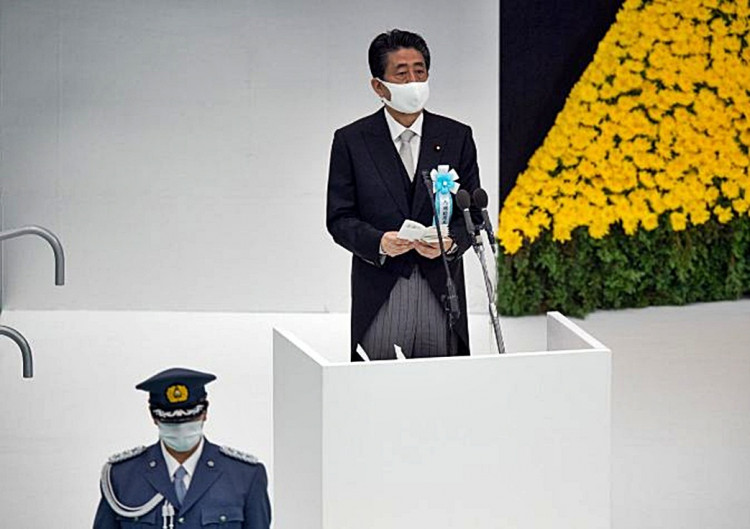In stunning contrast to his emperor, Japanese prime minister Abe Shinzo on Saturday expressed no remorse for Japan's inflicting the horrors of World War 2 on Asians but vowed his country would never launch another war again.
Friday marked the 75th anniversary of Imperial Japan's surrender to the American-led United Nations, a historic event that ended World War 2 in Asia. In contrast to Abe, Japanese emperor Naruhito expressed his "deep remorse" over Imperial Japan's conduct of the war.
"I earnestly hope that the ravages of war will never again be repeated," said Naruhito at the official ceremony. He made the statement after both he and Empress Masako bowed together before an altar in front of a bank of flowers. Both wore face masks.
Naruhito is the grandson of Emperor Hirohito, Japan's wartime emperor in whose name Japanese Imperial troops ravaged Asia with murders and atrocities.
For his part, Abe promised Japan would never repeat the horrors of World War 2. "Never to repeat the tragedy of war, we will continue to remain committed to this resolute pledge." said Abe wearing a face mask.
He later sent a ritual offering to Tokyo's Yasukuni Shrine where Imperial Japan's war dead are buried. The shrine also honors Japan's 2.5 million dead citizens from the war. For the seventh straight year, Abe avoided a personal visit to Yasukuni that would have angered China and South Korea. China and South Korea, the Asian countries that suffered the most from wanton Japanese brutality, regard Yasukuni as a hated symbol of murderous Japanese militarism.
Abe, however, is being held to account for the personal visit to Yasukuni by four of his Cabinet members. The Japanese media noted this is the first time in four years senior politicians have visited Yasukuni.
Education minister Koichi Hagiuda said he paid respects to the souls of the Japanese who nobly sacrificed themselves during the war. Shuichi Takatori, a member of Abe's ruling Liberal Democratic Party (LDSP), revealed he made the offering at Yasukuni on behalf of Abe as party leader. He said Abe paid his respects from the heart to the war dead. Abe also prayed for the permanent peace of their souls.
A statement from the Ministry of Foreign Affairs of South Korea expressed deep disappointment and concern over the ministers' visit to Yasukuni. It said Japan's leaders must show their "deep remorse through action."
On the other hand, the Chinese warned of a rebirth of Japanese militarism. We must learn from history, said an op-ed by the official newspaper of the People's Liberation Army about the anniversaryt of Japan's defeat. It said let history be a warning for the future, and show that we are prepared to fight in the event of a war.
Japanese barbarism during the war has not been forgotten, however. From the invasion of China in 1937 until Aug. 15, 1945, the Japanese military murdered some 10 million people in Asia. More than six million of these victims were Chinese. The rest were Koreans (about one million deaths), Indochinese (500,000 deaths), Indonesians (300,000 deaths), Filipinos (100,000 deaths), other Asians and Western prisoners of war.






